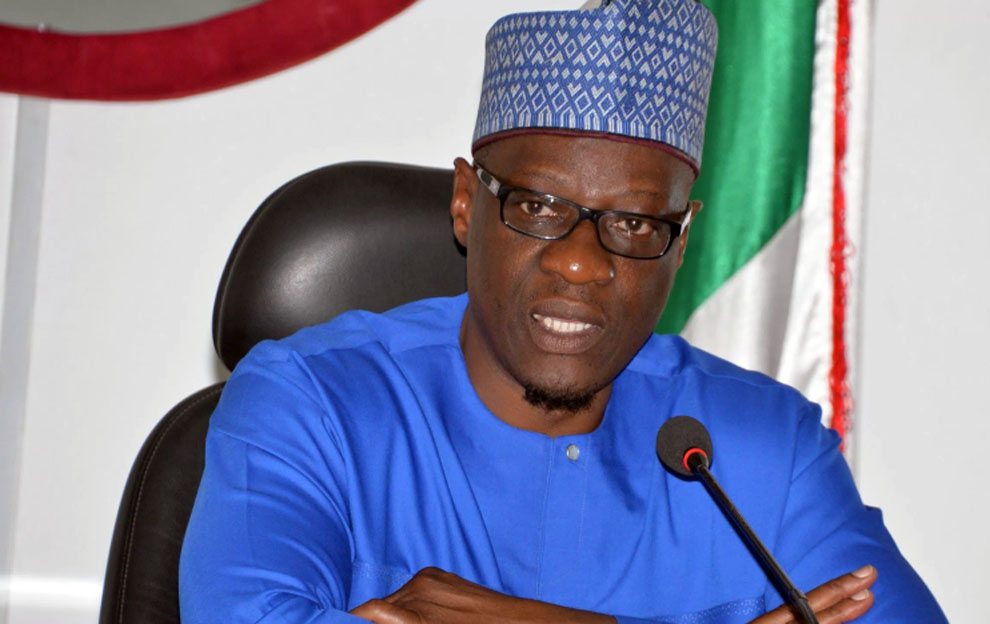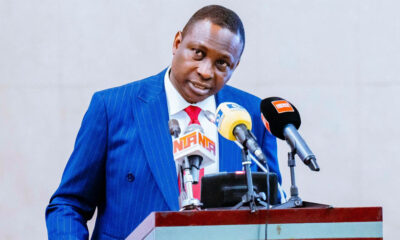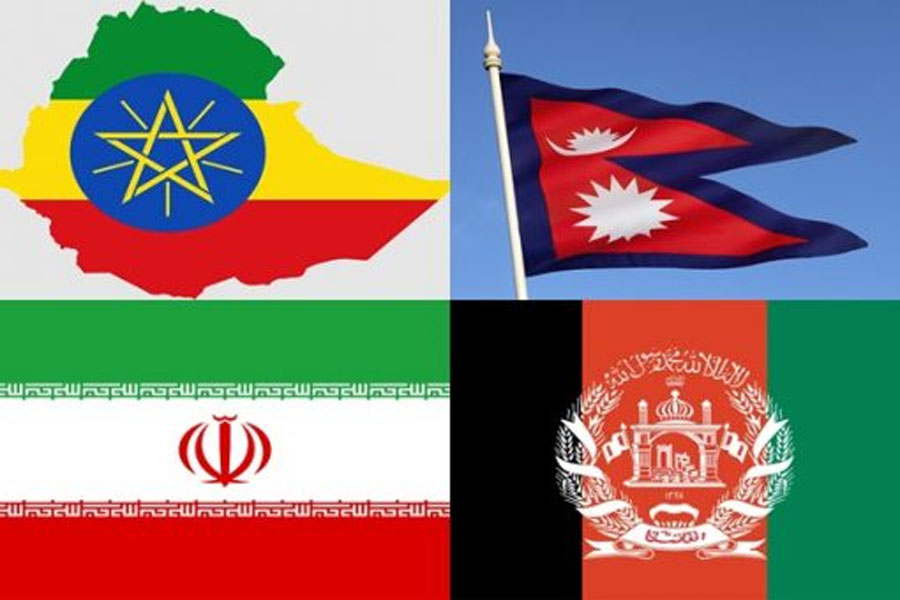EFCC re-arraigns ex-Kwara Governor Ahmed over N5.78bn fraud
Former Governor Abdulfatah Ahmed of Kwara State was on Monday re-arraigned alongside his finance commissioner, Ademola Banu, on a 14-count charge bordering on alleged stealing and mismanagement of N5.78 billion public funds.
The Ilorin Zonal Directorate of the Economic and Financial Crimes Commission, EFCC, arraigned them before Justice Mahmud Abdulgafar of the Kwara State High Court sitting in Ilorin.
Their re-arraignment was sequel to the transfer of the former trial judge, Justice Evelyn Anyadike of the Federal High Court sitting in Ilorin to another division, according to a statement by Dele Oyewole, Head, Media and Publicity of the anti-graft agency, on Monday.
The duo were first arraigned on a 12-count charge of mismanagement of public funds before Justice Anyadike on April 29, 2024, to which they pleaded not guilty. However, the presiding judge was transferred in the course of trial. Hence, the case has to start afresh.
While the name of the ex-governor featured in all the 14 counts, Banu’s name did not appear in count seven where only Ahmed was accused of failure to fill assets declaration form offered him by officers of the EFCC upon arrest contrary to Section 27(3)(c) of the EFCC Act No. 1 of 2004.
Former governor Abdulfatah among sundry issues allegedly spent an aggregate sum of N1,610,730,500.00, meant for the security and administration of the state to charter private jets through Travel Messengers Limited, contrary to Section 22(5) of the Corrupt Practices and Other Related Offences Act, 2000 and punishable under the same section.
The erstwhile governor and his finance commissioner were accused of conspiring to steal money meant to pay salaries of teachers working with the Kwara State Universal Basic Education Board and also to provide security and other infrastructural facilities for the people of the state, among others.
Count one of the charge read, “That you, ABDULFATAH AHMED (while being the Governor of Kwara State) and ADEMOLA BANU (while being the Commissioner of Finance of Kwara State), on or about 14 January, 2015 in Ilorin, within the jurisdiction of this Honourable court, did illegally spend the sum of N1,000,000,000.00, to pay salaries of civil servants in Kwara State which sum was originally domiciled in the Kwara State Universal Basic Education Board (SUBEB) matching grant account and which sum formed part of the funds allocated for the execution of the projects stated in the action plan for the year 2013 and approved by the Universal Basic Education Board (UBEC) and you thereby committed an offence contrary to Section 22(5) of the Corrupt Practices and Other Related Offences Act, 2000 and punishable under the same section.”
Count four read, “That you, ABDULFATAH AHMED (while being the Governor of Kwara State) and ADEMOLA BANU (while being the Commissioner of Finance of Kwara State), between 25th July, 2016 and 7th September, 2016 in llorin, within the jurisdiction of this Honourable court, in such capacity having dominion over certain property, to wit; the sum of N990,545,883.64 committed criminal breach of trust in respect of the said sum, when you dishonestly transferred the said sum from the Kwara SUBEB matching grant account into Polaris Bank for the repayment of loan facilities granted to the Kwara State Government by the said bank contrary to the direction of the Compulsory Free Universal Basic Education Act, 2004, and you thereby committed an offence contrary to Section 315 of the Criminal Code and punishable under the same section.”
When the case was called on Monday, counsel to the EFCC, Rotimi Jacobs, SAN, told the court, “My Lord, we have a 14-count charge dated 15th day of October 2024, and filed on same date. We urge your Lordship to accept the charge and allow it to be read to the defendants.”
Responding, the lead counsel to the defendants, Kamaldeen Ajibade, SAN and Gboyega Oyewole, SAN, did not object to the application.
Justice Abdulgafar therefore granted the application and ordered that the charge be read to the defendants.
The duo pleaded not guilty.
Thereafter, the defence counsel sought the leave of the court to move oral applications for the bail of the defendants.
They told the court that the case had started since 2019 and the defendants were granted administrative bail by the Commission, which they had never jumped.
They urged the court to exercise its discretion and admit the defendants to bail as all the offences levelled against them are bailable.
Ruling on the applications, Justice Abdulgafar admitted Abdulfatah and Banu to bail in the sum of N100 million, with two sureties each. One of the sureties must be a Permanent Secretary, serving or retired.
The case was adjourned till December 4 – 5, 2024, for commencement of trial.
EFCC re-arraigns ex-Kwara Governor Ahmed over N5.78bn fraud































